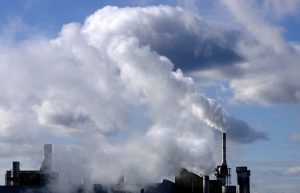1.1 Economics
Definitions:
Economics is a social science that examines how people choose among the alternatives available. It is social because it involves people and their behaviour. It is a science because it uses, as much as possible, a scientific approach to investigate choices.
Scarcity means that human wants for goods, services and resources exceed what is available. Because of scarcity, we need to make choices.
Choices mean that one alternative is selected over another. Selecting alternatives involves three ideas central to economics: scarcity, choice, and opportunity cost.
Scarcity
If you look around carefully, you will see that scarcity is a fact of life. Our resources are limited. At any one time, we have only so much land, so many factories, so much oil, so many people. But our wants and desires for the things we can produce with those resources are unlimited. We would always like more and better housing and education—more and better of practically everything.
If our resources were unlimited, we could say yes to all our wants—and then there would be no economics. Since our resources are limited, we cannot say yes to everything. To say yes to one thing requires that we say no to another. Whether we like it or not, we must make choices.
Our unlimited wants are continually colliding with the limits of our resources, forcing us to pick some activities and reject others. Scarcity is the condition of having to choose among alternatives. A scarce good is one for which the choice of one alternative use of the good requires that another be given up. Consider a parcel of land. The parcel presents us with several alternative uses. We could build a house on it. We could put a gas station on it. We could create a small park on it. We could leave the land undeveloped to be able to make a decision later as to how it should be used. Suppose we have decided the land should be used for housing. Should it be a large and expensive house or several modest ones? Suppose it is to be a large and expensive house. Who should live in the house? If the Matthews live in it, the Nguyens cannot. There are alternative uses of the land in terms of the type of use and the sense of who gets to use it. The fact that land is scarce means that society must make choices concerning its use.

Virtually everything is scarce. Consider the air we breathe, available in huge quantities at no charge. Could it possibly be scarce? The test of whether air is scarce is whether it has alternative uses. What uses can we make of the air? We breathe it. We pollute it when we drive our cars, heat our houses, or operate our factories. In effect, one use of the air is as a garbage dump. We certainly need the air to breathe. But just as certainly, we choose to dump garbage in it. Those two uses are alternatives to each other. The more garbage we dump in the air, the less desirable—and healthy—it will be to breathe. To breathe cleaner air, we must limit the activities that generate pollution. Air is a scarce good because it has alternative uses.
Attribution
“1.1 Defining Economics” in Principles of Macroeconomics by University of Minnesota is licensed under a Creative Commons Attribution-NonCommercial-ShareAlike 4.0 International License.

